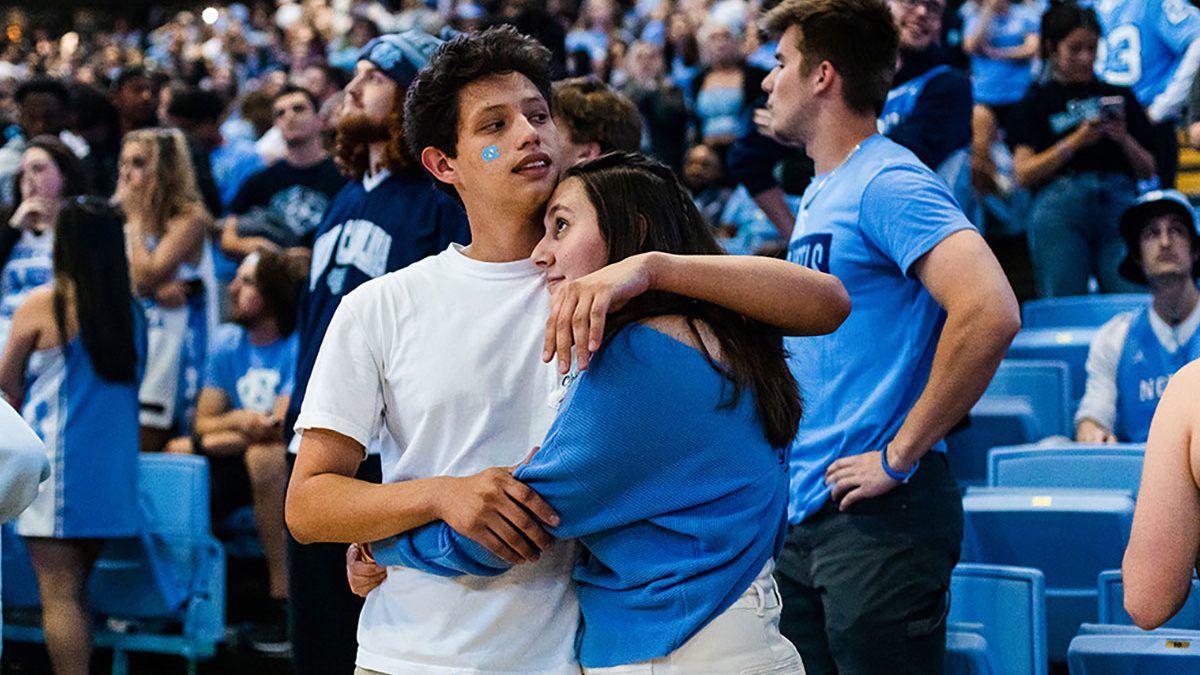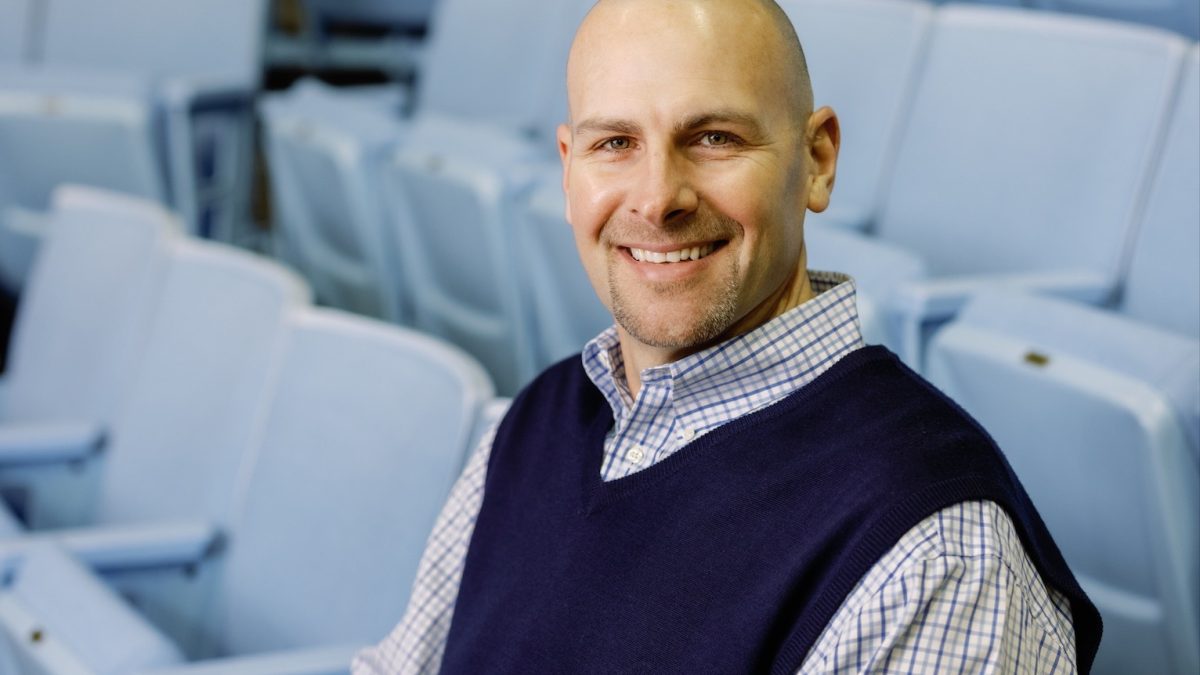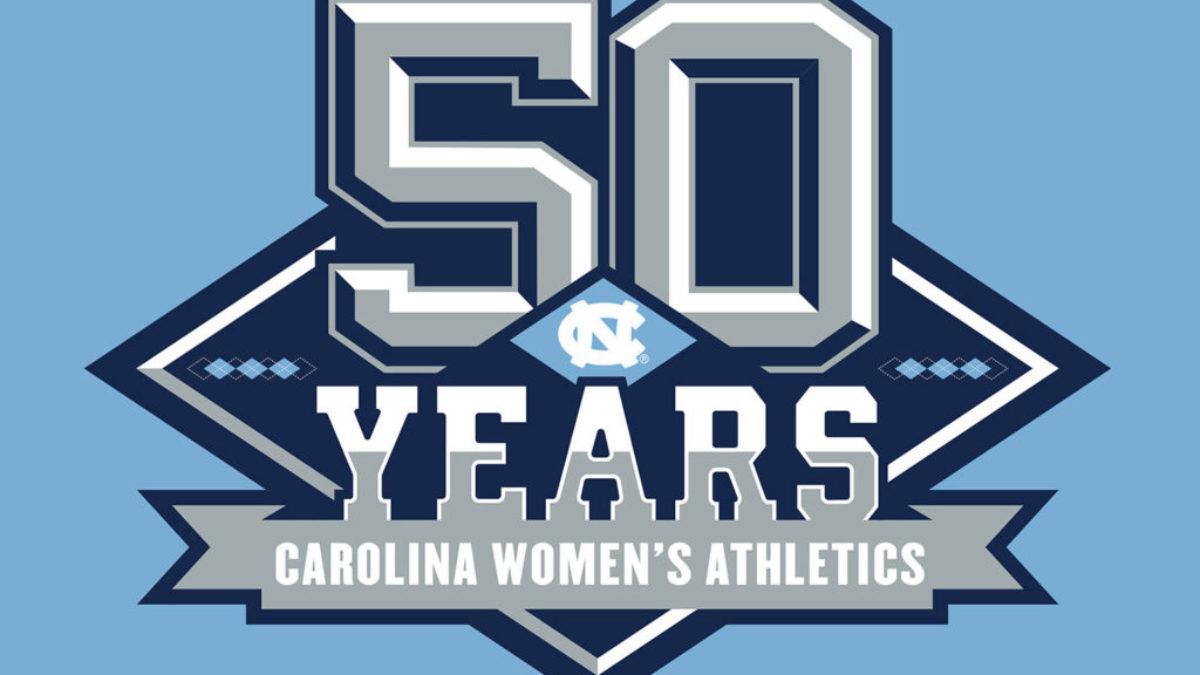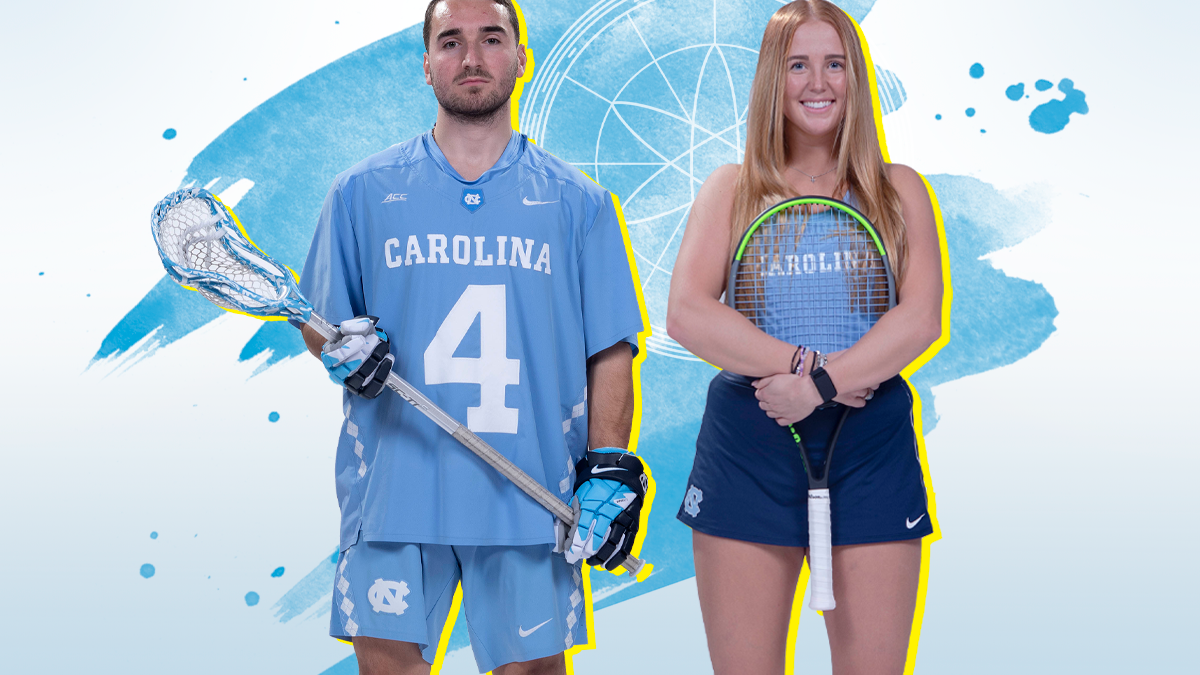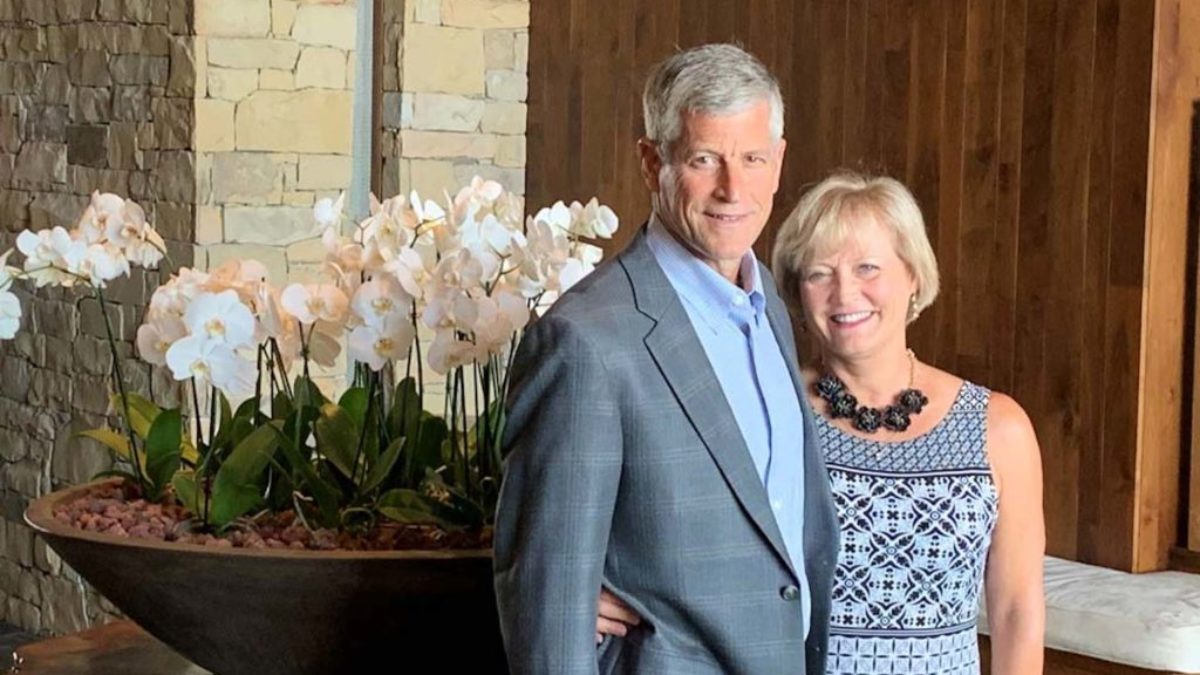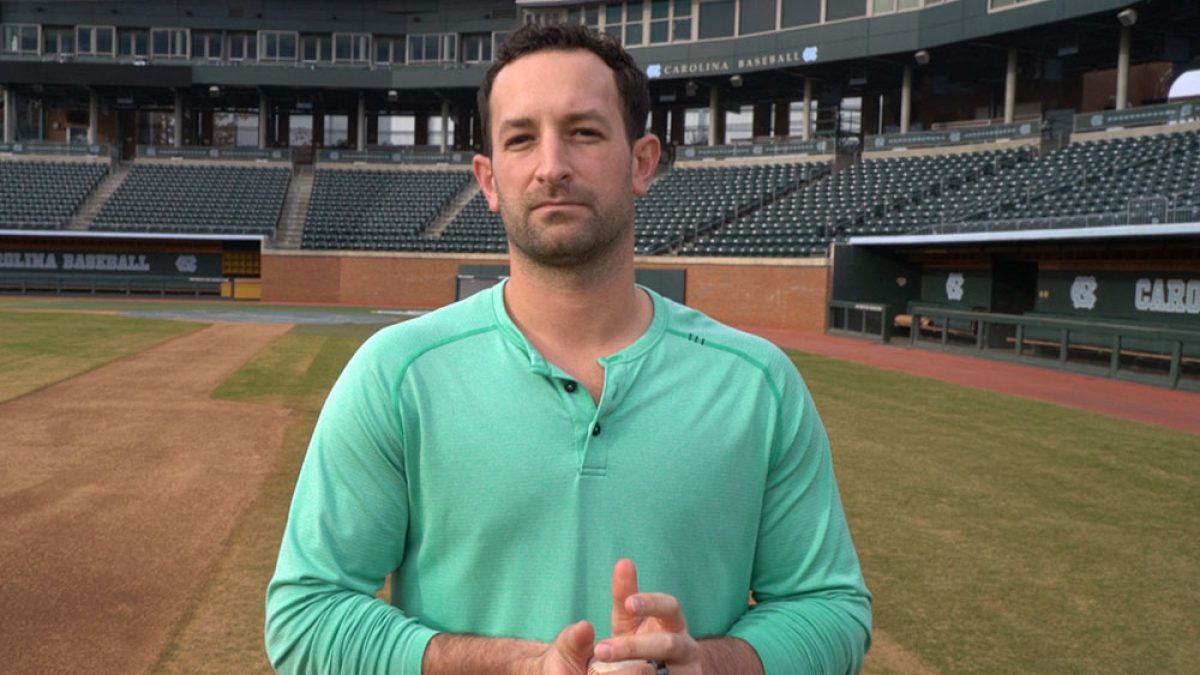Behind the Scenes with Bubba Cunningham
Published on February 24, 2020Carolina Athletic Director Bubba Cunningham talks about the FORevHER Tar Heels initiative.
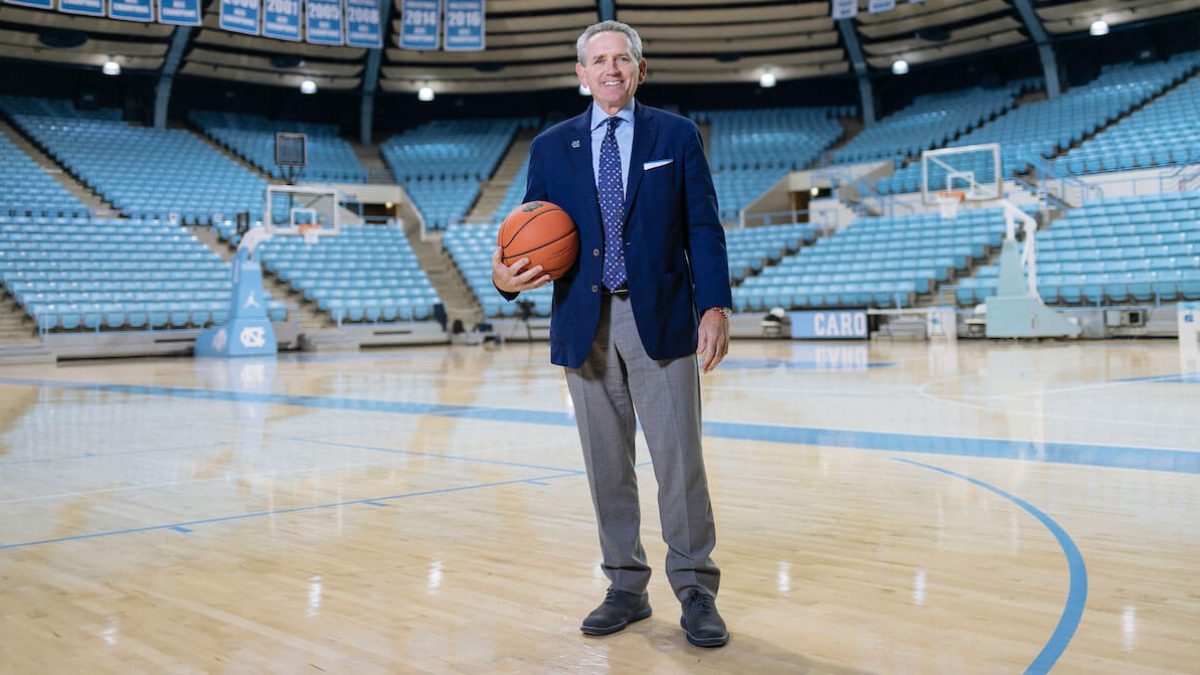
Carolina Athletic Director Bubba Cunningham talks about the FORevHER Tar Heels initiative.
If there’s one thing we can all agree on, it’s that Carolina’s female student-athletes are crushing it. Last fall, the Tar Heels’ field hockey team earned its second consecutive undefeated season and claimed its eighth national title. The women’s soccer team competed in the national championship game, once again. UNC-Chapel Hill senior Sara Daavettila won the singles title at the Intercollegiate Tennis Association fall national championships, and earlier this month, our women’s tennis team won its fourth ITA indoor national championship.
In all, women’s teams have won 37 of Carolina’s 52 national titles. With women’s sports on our mind, we sat down with Bubba Cunningham, director of athletics at Carolina, to learn more about FORevHER Tar Heels, an initiative to build and inspire a Carolina community that champions and empowers female student-athletes.
Tell us about the journey to your current role as director of athletics. Why did you pursue this career, and what motivates you every day?
My first job at a university was actually at an alumni association, which helped me understand the breadth of a university and all of the great things the various departments bring to a university environment. Three years later, I switched over to athletics, and I brought that collaborative perspective with me.
I am motivated daily to create opportunities for students to come to Carolina and get an education and play their sport, something I’ve always felt has been very important. I’ve visited public schools, private schools and national universities, and I think I have a good perspective on intercollegiate athletics, from a grassroots standpoint all the way to championships. That’s what I really enjoy providing the opportunity for students to get an education while playing the sports they love — and to have some small part in creating a culture where our coaches and students thrive.
Did you always want to work in athletics?
Well, I will say that my career path is a surprise. I didn’t have an ambition right out of college to go into intercollegiate athletics. But I did learn, over time, that this is the place for me. When I think about where the best place is to do that, I think of Carolina. UNC-Chapel Hill has some of the finest students in the country, we have an incredible athletic program and we have a history and tradition that brings a sense of pride. We have excellence in all of our programs. When you aspire to do something, you want to do it exceptionally well — and in an exceptional place. Carolina fits that to a T.
What does the FORevHER Tar Heels campaign mean to you?
Carolina has set the standard for women’s athletics. From the time that Mia Hamm put on the jersey and played for Carolina, women’s sports in the country have changed. There are thousands of girls and women who are in sports because of Mia.
The investment in women’s sports that Carolina made back in the 1970s has paid off, time and time again — not only in the 37 national championships and the scores of Olympians but also in creating hope and inspiration for younger generations.
We continue to invest in our female athletes. The FORevHER Tar Heels campaign will allow us to continue to support these sports and will allow multiple generations of women to come and learn what competition is all about, how to push themselves. When they finish their sports careers, they will go on to have amazing lives because of the education they received here.
How will the FORevHER Tar Heels initiative impact women’s sports at Carolina as a whole?
You know, we have 15 sports for women. We have more than 400 women participating collegiately, and we want to continue to support that broad-based program; we want to continue to offer these opportunities. We want to attract the outstanding women of this country to Carolina, and the FORevHER Tar Heels initiative gives us a chance to do that.
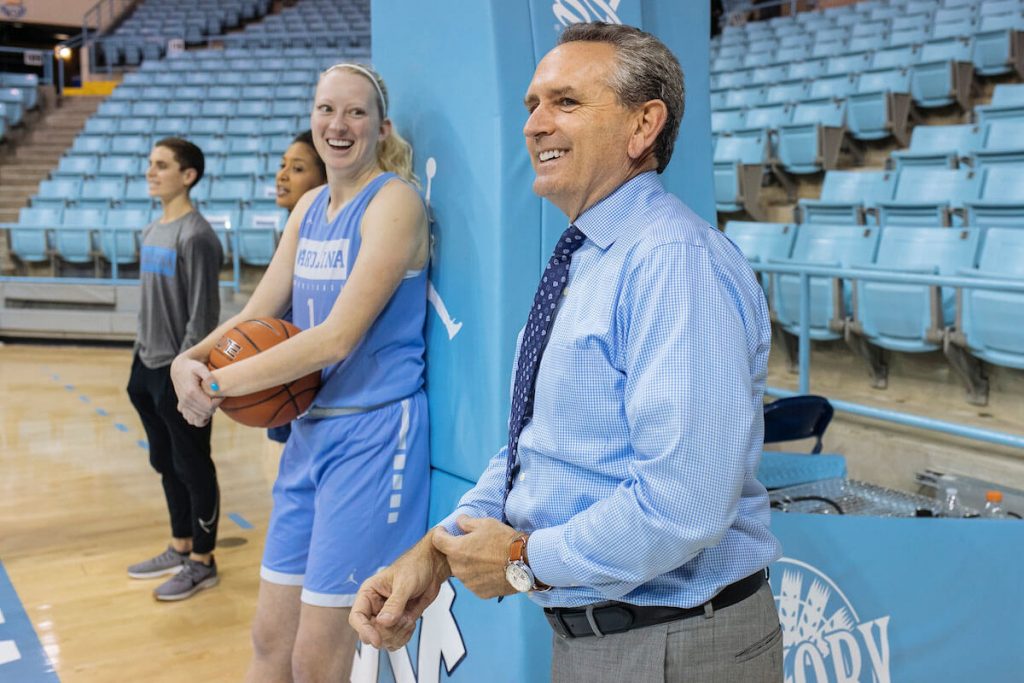
What new opportunities has FORevHER Tar Heels already created for female athletes at Carolina?
One of the first things we’ve established is a mentoring program — bringing back our former letter winners and people in the community who want to help today’s student-athletes. I think that is one of the best things that we can do, to connect our student-athletes with successful women. We have provided more educational opportunities, more ways for students to learn about careers and find a path post-competition. And that’s just the start of it.
Which Carolina women athletes have stood out to you over the years?
There are so many of them. Kara Cannizzaro, a former Carolina lacrosse player who had an outstanding athletic career, stands out. Now, her passion is connecting our current players with former players. Sue Walsh, an incredible swimmer, has been here for 30 years creating the finest endowed scholarship for student-athletes in the country, and that shouldn’t go unnoticed. And she’s had an incredible career — she was way ahead of the curve and thinking about how to make this happen for a long period of time. I also think about Kristen Brown, an incredible softball player who is now coaching at the University of Florida. We have so many women that will inspire other women and coach others. These are the opportunities that really make this job rewarding.
Describe some of the background involved in Carolina becoming a Title IX university and why that is so important.
Carolina invested heavily in female athletes in the 1970s. Today, 60 percent of our student body and over half of the general population is female. For many generations, sports have been a male-dominated — on the sidelines, and in the boardrooms, as well. I think the success of our programs is reflected in the success of the individual women who have been an inspiration to others. These successes will continue to make society better. I’m grateful to be a part of it, and it is inspirational to our staff to see what these women do and to know that they’re going to be successful in life.
What are some of the ways we support our athletes at Carolina outside of athletics?
As I mentioned earlier, we are starting to do an even better job with mentoring programs, career symposiums, bringing inspirational speakers back to campus to relate their personal stories so that our students can hear, learn and grow from others’ mistakes and successes. A lot of times, you take that for granted — that you are going to learn those things — but if you’re intentional, you’re going to be more successful. Our student-athletes also contribute more than 5,000 community service hours a year. They take pride in giving back, in supporting others outside of athletics, as well — and that’s another thing that makes me proud.

